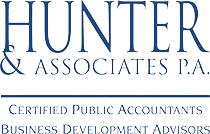
Theft takes many forms. Individuals can steal one another’s heart. They can steal possessions, such as cars. Identity theft is a growing problem. Trivial matters can steal time. Although many individuals don’t regard misusing company assets as theft, it is a form of stealing, that along with employee theft, costs American businesses millions, if not billions, of dollars every year.
There are dozens of ways of misappropriating business funds, from taking company supplies for personal use to falsifying expense reports or hours worked to skimming cash. While these may seem like minor infractions for relatively small amounts, they can add up over time.
The biggest losses, however, are often due to those in upper management positions misusing company funds. When managers take business assets for personal use, the atmosphere of dishonesty their action creates makes it easy for employees to follow suit. Whether someone is taking lunch money out of the petty cash drawer or funneling company funds into a personal account, the size and frequency of the misappropriated amounts tend to increase until the theft is detected.
The City of Portland recognizes misuse or misappropriation of business funds as a big enough problem for local companies that the Police Bureau has compiled information on prevention and detection.
The loss of cash can destroy a small business. In the case of businesses that are a sole proprietorship, a family member or trusted employee is usually the individual who personally benefits from business assets that don’t belong to them. In entities such as partnerships or small corporations, the culprit may be an employee, one of the partners, or a shareholder.
Honest Mistake Or?
What kind of employees, managers (or owners) steal from their own company? And why?
In the case of small businesses, it can be unintentional. Executives or manager may not have the time or expertise to keep good records, and personal expenses get mixed up with business expenses. Some managers may feel that because their business is such a large obligation, they are entitled to have the business pay at least a portion of their personal expenses and make no effort to separate them.
Some managers aren’t quite so innocent. They may feel like they are more deserving, so they take what they want from the company and often falsify records to hide their activity. Some benefit indirectly by padding the numbers by claiming as business expenses and benefits for family members, many of whom perform minimal, if any, services for the business.
As well as misuse of company funds, the IRS regards those kinds of transactions as tax evasion. Individuals tend to disagree, considering their actions as part of the game of reducing what they have to pay in taxes.
It’s More Than Pilfering Petty Cash
The biggest losses to most companies result from embezzlement or fraud. These are more than tax evasion games. Nor are they the result of a lack of business knowledge. Both are intentional and can wreak havoc in, if not destroy, a small business.
According to research from The Association of Certified Fraud Examiners, three conditions lead an individual to steal: motivation, rationalization, and opportunity. An individual needs something, is able to justify in their own mind why it’s okay to take what belongs to someone else, and there isn’t anything in place that stops them from taking what they want.
They Need More Money
There is no lack of motivation for converting company cash to personal use. Individuals can bury themselves in debt if they have an addiction, such as gambling or using illegal drugs. They may have overspent in an effort to impress someone else. Sometimes they’re overwhelmed by financial events beyond their control, such as unexpected medical bills, destruction from a natural disaster, or investments gone bad. Some just want new toys, like expensive late-model cars, or a new home in an exclusive neighborhood, with a mortgage and upkeep way beyond their means to pay.
Before they know it, they are thousands of dollars in debt without the resources to pay it off. Regardless of how they ended up in financial distress, individuals so desperately need cash that they are unable to resist the temptation of taking money that isn’t theirs.
It’s for A Good Reason
There is also no lack of rationalizing for taking money or business inventory that belongs to others. To give them the benefit of doubt, many at first regard their misappropriation of funds as “temporary.” They will pay it back as soon as they are able, and no one will know the difference. Some think the company has so much money that what they take won’t be missed. Others feel like they are underpaid, or their efforts aren’t appreciated enough, so they deserve the “extra” they take.
Employees often believe that insurance covers their theft, so no one gets hurt. Managers might believe that theft losses can be deducted on their own or the business tax returns. Regardless of how or what they take, individuals frequently believe their actions are harmless.
Putting A Lid on The Cookie Jar
After an individual has figured out a way to turn the company’s assets into personal gain, and have cleared their plans with their conscience, they still need an opportunity when no one is looking to fill their pockets. Without good Internal controls, company assets can be easy pickings for most would-be embezzlers and fraudsters.
Internal controls “are the mechanisms, rules, and procedures implemented by a company to ensure the integrity of financial and accounting information, promote accountability and prevent fraud.”
Accountants eat, breathe, and sleep internal controls. They incorporate them in setting up systems, in performing audits, and in evaluating any aspect of a business.
Dividing Duties Increases Security
One of the basics of good internal control is separation of duties. That means different people have responsibility for duties such as issuing purchase orders or invoices, authorizing expenditures, writing checks, making deposits, and reconciling accounts. Although any size of business can be victimized by employee theft, small businesses are generally more vulnerable. That’s because they often don’t have the staffing to implement adequate internal control.
Another vulnerability results from the fact that small business employees often are family members or friends. Others may have been with the company since start-up. Because owners rely on and trust such employees, they in essence, if not actual practice, leave the cash drawer wide open and the security system turned off.
This is not to say that large entities are immune. The County of Spokane recently discovered that a trusted employee had embezzled more than a million dollars of public funds. As a result, the County is improving its internal control procedures
Taking Responsibility
When it comes to safeguarding a business’s assets, an individual’s motivations and rationalizations are private matters. Eliminating opportunity is the responsibility of owners and management.
According to professional fraud investigators, individuals in small companies most often misappropriate cash through billing fraud, bribery, kickbacks, check tampering, skimming, and false reimbursements. These are the types of activity that good internal controls are designed to prevent. Companies that aren’t able to have adequate on-site staff can benefit from the services of outside accountants who specialize in internal controls for small businesses.
Managers (and owners) who are inadvertently misusing company funds will benefit from consulting with an accountant to clarify which expenditures are legitimate business expenses. Systems can be implemented so that business profits are fairly presented, and assets protected. A professional can also point out the consequences of false reporting to taxing entities, banks, or investors.
November 17-23, 2019 is International Fraud Awareness Week. Although the campaign is primarily directed toward preventing fraud on global levels, free resources are available that are helpful for businesses of all sizes.
Need Help?
We want to believe the best of those with work with but there can be moments of doubt when things don’t make sense. We can help you have more confidence that the money is where is intended to be and help you know when it’s not. If you need help, please take a moment to contact Lewis here. They would be very happy to have a confidential conversation about the issues you think might exist.




